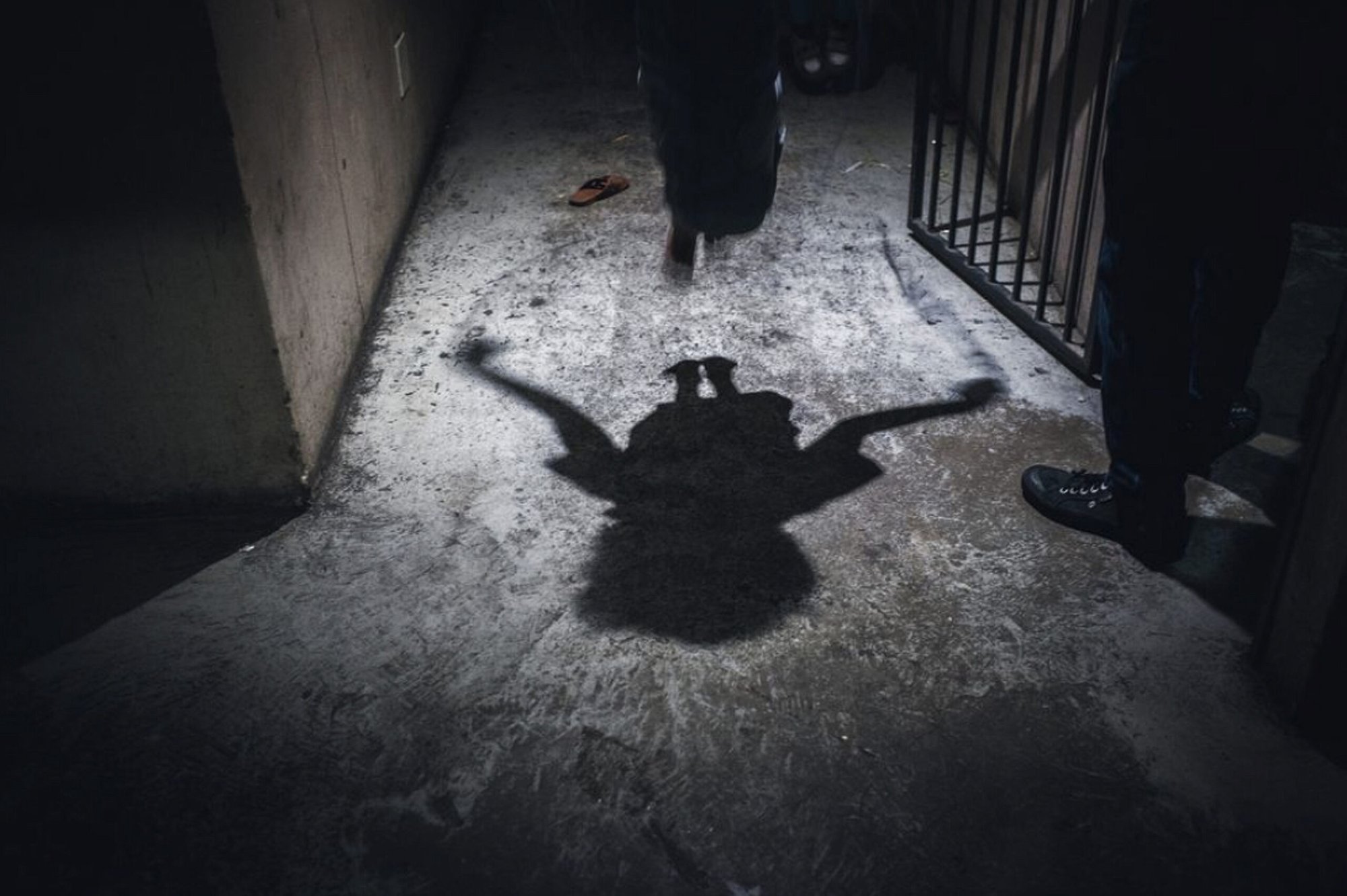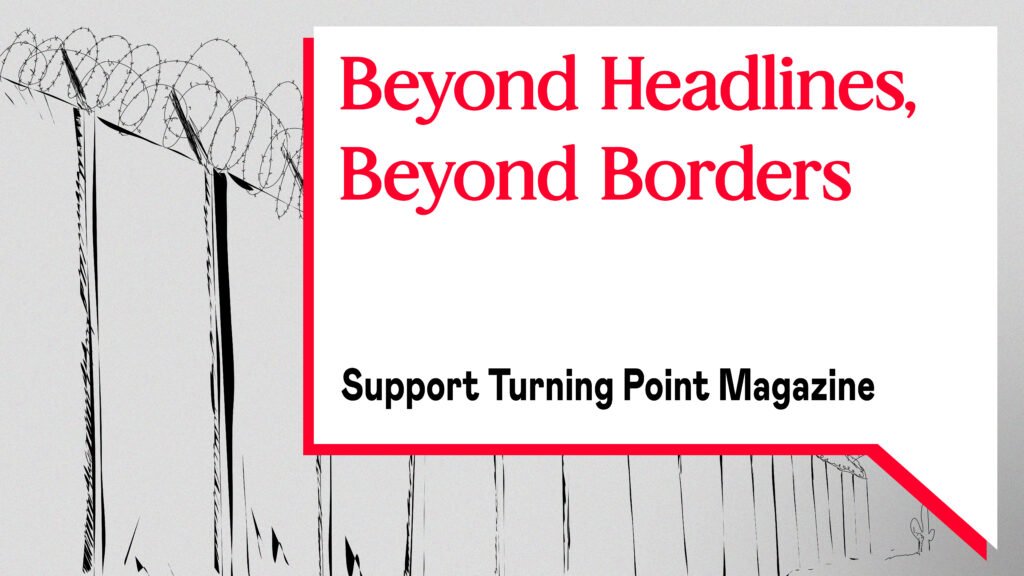Cover photo: In Johannesburg, families evicted for malls still wait in “temporary” shelters years later. Mothers nurture hope amid scarcity, children grow in shadows of dispossession—the same colonial present echoed. 2014 ©Fredrik Lerneryd
Eighty years ago this month, 90 delegates gathered in Manchester’s Chorlton Town Hall to declare war on imperialism. The Fifth Pan-African Congress of October 1945 was not asking for reform—it was declaring revolution. George Padmore, Kwame Nkrumah, Jomo Kenyatta, and their comrades saw clearly what the post-war order would bring: either meaningful self-determination or a reshuffling of colonial cards. “We are determined to be free,” they declared.
Fifteen years later, that determination would meet its response. Johan Grimonprez’s film Soundtrack to a Coup d’État lays bare the answer imperialism gave to African independence: jazz in the concert halls, assassination in the streets. As Louis Armstrong played for cheering crowds in the Congo, the CIA was orchestrating Patrice Lumumba’s murder. The dual strategy of cultural seduction paired with violent suppression remained the playbook for decades to follow. Today’s soundtrack may have changed but the “coup” continues. Where once jazz ambassadors provided cover for covert operations, now humanitarian aid conceals resource extraction, development loans mask debt traps, and so-called security partnerships enable occupation.
The architecture of exploitation has evolved but its foundations remain intact. Where once colonial administrators ruled from Government House (those grand colonial buildings from which British governors controlled entire territories), today’s neocolonial projects operate through private military contractors, debt financing, and resource extraction zones. This can be seen in how the United Arab Emirates (UAE) aids and assists massacres in Sudan through the Rapid Support Forces (RSF)1 whilst mining gold from the suffering. Particularly since 2003, the Turkish state has transformed its humanitarian aid in parts of Africa into leverage, while occupying northern Cyprus and Syria, and continues its war on Kurdish self-determination with NATO’s backing. Russia’s Wagner Group seems to have morphed from one African state to another, trading security guarantees for mining concessions. It’s important to note that these aren’t aberrations but the system working as designed.
Meanwhile, the old imperial powers show no sign of retirement as their ideological underpinnings drive them to develop new strategies. France maintains its CFA franc stranglehold on 14 African nations whilst its soldiers “fight terrorism” from Mali to Niger, the same counterinsurgency Lumumba faced, now called counterterrorism. Britain sells arms to anyone buying whilst claiming itself a champion of liberal democracy and human rights. The United States operates from over 30 military bases across Africa, each one a node in what it still calls “promoting democracy”, as the 21st century imperial core. The resource extraction that Nkrumah warned us against hasn’t ceased—it’s accelerated. Every smartphone contains Congolese cobalt mined from the same Katanga province where Lumumba was murdered, every electric vehicle battery demands lithium from territories whose sovereignty is continuously violated.
The metropolitan centres reveal the domestic face of this global apartheid. Trump’s “American jobs for Americans” may be a different face of the same coin of the slave economies of the Gulf states, where South Asian workers die building stadiums and African domestic workers disappear into private homes of the oil rich. The same European leaders who criminalise rescue boats in the Mediterranean depend on the vulnerable workers these policies create, people stripped of rights, desperate enough to pick fruit for pennies, clean offices at night, care for children without contracts. The far-right’s anti-migration hysteria isn’t about keeping people out; it’s about keeping them rightless, creating what Achille Mbembe calls “a form of death-in-life.”
This manufactured precarity extends beyond borders to gender itself. The global resurgence of patriarchal politics, from Trump’s America edging towards Gilead-like politics to the Taliban’s gender apartheid, isn’t coincidental. It’s neocolonialism recognising that women’s unpaid labour and controlled reproduction are essential to accumulation and absolute power. Therefore, the “dangerous migrant men” narrative serves a double duty: creating a hyper-exploitable workforce whilst justifying the rollback of women’s hard-gained freedoms in the name of back-to-tradition-esque “security.” Every abortion ban, every attack on women’s economic independence, every moral panic about gender is part of the same extractive logic that treats us as resources to be mined.
Western Sahara remains occupied. Palestine faces annihilation with Western weapons and Western consent. The Kurdish people, promised self-determination a century ago, watch as their territories are carved up between states that denied their existence. Sudan collapses whilst its gold flows to Dubai. The Congo bleeds minerals whilst its people starve. These aren’t separate crises, they are the machinations of neocolonialism at play.
Of course, as has been the case throughout history, resistance persists with the same determination that filled Manchester’s halls in 1945. From the youth of Khartoum documenting war crimes and self-organising to the women of Iran cutting their hair in defiance, from Palestinian journalists courageously reporting while trying to survive genocide to African climate activists blocking European resource extraction, it is evident that the spirit of the Fifth Congress lives. They understood then what we must grasp now: the struggle against imperialism is not a metaphor or a posture. It is the recognition that our fates are interlinked, that the Sudanese gold miner, the Kurdish woman, the Palestinian child, and the undocumented cleaner in London are part of the same struggle against the same system.
The delegates of 1945 did not politely request freedom, they declared their struggle and action plan to take it. They knew, as Lumumba would sadly learn fatally, that independence given can be independence revoked. Eighty years on, with the colonial machine retooled but not retired, that declaration requires renewal. Not as nostalgia, but as a programme. Not as rhetoric, but as resistance. The Pan-African Congress asked: “Are we going to be free or not?” In every cobalt mine, every detention centre, every occupied territory, the question echoes still. The answer they gave then is the answer required now: by any means necessary.
- The Rapid Support Forces (RSF) was formally established in 2013, emerging from the Janjaweed militias that had waged a brutal campaign in Darfur, where they were accused of genocide, ethnic cleansing, and other atrocities against non-Arab communities. ↩︎





